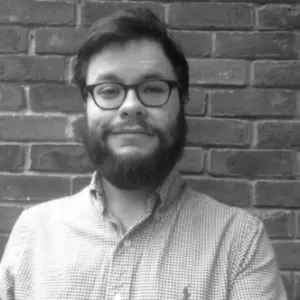In brief
- In an interview, OKCoin CEO defends its controversial trading suspension of BSV and BCH.
- Craig Wright’s recent legal threats prompted the suspensions.
- OKCoin CEO says BSV and BCH should stop "hiding behind" the Bitcoin brand.
San Francisco-based crypto exchange OKCoin announced on Friday that it will suspend trading of Bitcoin Cash (BCH) and Bitcoin SV (BSV)—two forks of Bitcoin (BTC)—starting March 1.
OKCoin CEO Hong Fang said the suspensions aim to stop the “malicious misinformation war” waged by self-titled Bitcoin creator Craig Wright, who spearheaded the development of BSV, and by others influential in the development and promotion of BSV and BCH.
“You cannot just let the bad guys roam out there and say nothing,” Fang told Decrypt, in apparent reference to Wright and others active in the the BSV and BCH projects whom she refused to name.
But OKCoin's move is also an effort to protect Bitcoin, she said.
Fang told Decrypt that BSV and BCH should stop “pumping the campaign of ‘Oh, [Bitcoin] is not a store of value,’” at a time when “the free money printing is getting a lot of attention and macroeconomic viewpoints are attracting more people into Bitcoin as a store of value.”
BSV and BCH, both of which claim to be the ‘real’ Bitcoin, confuse novice investors and chip away at its trillion-dollar reputation, Fang said.
But people influential in the development and promotion of BSV and BCH, who spoke to Decrypt, question OKCoin’s motives in suspending trading of the coins.
Coins going their own way
BSV and BCH are two coins that emerged from major hard forks of Bitcoin. In crypto, hard forks occur when users of a blockchain split from the rest of the network to create a new one, usually over some disagreement.
Forked networks often come with new features and coins. Bitcoin Cash, the Bitcoin fork launched in 2017, modelled itself after the conviction that Bitcoin should become a kind of digital cash. To make the network fast enough, BCH developers increased the Bitcoin blockchain’s block size.
Bitcoin SV, or “Satoshi’s Vision,” increased that block size even further, making it, in the eyes of its creators, even Bitcoin-ier. “Satoshi” refers to Bitcoin’s pseudonymous creator, Satoshi Nakamoto, whom Craig Wright, BSV’s founder, professes to be. His claims are widely rejected, including by Fang.
Wright’s IP threats: the final straw
Fang is tired of Wright and his anti-Bitcoin antics.
In late January, Wright threatened legal actions against any website that hosts Satoshi Nakamoto’s whitepaper “Bitcoin: A Peer-to-Peer Electronic Cash System”—the founding document of Bitcoin—since he, as the self-proclaimed real Nakamoto, holds the intellectual property rights.
Fang told Decrypt that OKCoin execs began discussing a course of action right after Wright sent letters to those in the open-source community. “It’s destructive to threaten and bully open source developers,” she says. “That's just not acceptable.”
Addressing to the concern that her strategy to de-platform Wright could hurt ordinary BSV investors, Fang said that someone needed to stand up against him. “Everyone in the community has a responsibility for [letting] that bad guy in.”
Throwing the babies out with the bathwater?
But it's not just about Wright and BSV. OKCoin also plans to suspend trading of BCH, a project that’s no longer affiliated with Wright, nor his No. 2, Calvin Ayre.
That’s because both BSV and BCH are confusingly similar to BTC, said Fang, since each fork claims to be the “real” Bitcoin. The Bitcoin Association, for example, is run by the BSV project. On Reddit, 456k-strong r/btc is, in fact, a Bitcoin Cash forum.
All of this, Fang said, confuses novice investors into conflating BTC with BCH or BSV.
Those involved with BSV and BCH told Decrypt they don’t find OKCoin’s reasons compelling.
Kurt Wuckert Jr., a writer on the pro-BSV website CoinGeek.com, told Decrypt, “Are they aware that Craig Wright and the BSV network are separate entities altogether? Craig being a human, and BSV being a distributed consensus network?”
The discussion also strikes at the heart of crypto's ongoing identity politics.
“There is no purity test to being a bitcoiner, and any discussion about the practical shunning of someone because they may be unsavory is a dangerous discussion,” he said. “[OKCoin’s] comfort with cancel culture is disheartening.”
Edward Kelso, who used to help out with the BCH community’s Bitcoin.com website and who now runs the coin-agnostic coinfugazi.com, told Decrypt that it’s obvious BSV and BCH are distinct from Bitcoin. “Noobs have been confused, but I think it's mostly an overstated concern, an excuse to dislike BCH,” said Kelso. “That's an argument that faded over time.”
Kelso said that BCH took steps to prevent potential confusion. When Stephen Rust took over Bitcoin.com from Roger Ver in 2019, he scrubbed the site’s policy of referring to Bitcoin as “Bitcoin Core”.
“We gave Craig Wright and Calvin Ayre the boot [a long time ago],” added John Nieri, president of General Protocols and a contributor to Bitcoin Cash.
And the projects have hardly formed an alliance to take down Bitcoin.
Wuckert Jr., who writes for Ayre’s pro-BSV site CoinGeek.com, said that Bitcoin Cash is a “chaotically developed project that has large turn-overs in leadership on a regular basis.”
In contrast, Kelso said Bitcoin Cash is an “admirable project” that “[carries] the mantle for a medium of exchange version.” Bitcoin SV, on the other hand, “ runs counter to the Bitcoin ethos,” he said, and is concerned with being “in service to a Panopticon, arresting everyone, suing everyone, throwing them in jail. OKCoin is under no obligation to support that nonsense.”
Stop wasting time and move on
For Fang, the debate over the intended use of Bitcoin—whether it’s more like digital gold or more like everyday currency—stopped being relevant years ago. “After three-plus years, it doesn’t matter.”
The reality is that the world considers Bitcoin as a store of value, she argues. “BSV and BCH should just accept that reality and move on,” Fang told Decrypt. “They should stop hiding behind the original BTC brand and clearly distinguish themselves. Pick a new name, pick a new brand and work on your use case—work the hell out of it and promote it.”
But Bitcoin Cash has already moved on and continues to pursue the vision of peer to peer electronic cash for the world, said Nieri. “The posturing about branding is odd.”
“BCH does clearly pursue the use case of peer-to-peer electronic cash,” he said. It’s in the name, for a start: “Bitcoin is very much a part of what Bitcoin Cash is, so no, the name is not going to change.”
According to Kelso, BCH has a right to the Bitcoin name because it is part of the chain and shares its history. BCH’s name is staying, he said—it has grown and spread out too much to change now, he explained.
So, does OKCoin have data that points to user confusion about BTC resulting from BCH and BSV branding? “I will be honest,” Fang told Decrypt, “we haven't done a very thorough analysis of that.”
But there’s “anecdotal data from customers” who report being confused by BSV and BCH, she said. And for that, Fang feels responsibility.
OKCoin vs Bitcoin Cash: Bitcoin.com Spat, Reloaded?
There’s another, more conspiratorial angle to this feud: OKCoin and Roger Ver, BCH's poster boy, first came to blows six years ago over the management of the Bitcoin.com domain when an existing agreement over website management and profit-sharing between OKCoin and Ver broke down.
Fang told Decrypt that she wasn’t aware of the 2015 Bitcoin.com spat at all. “Honestly, If we had recorded our internal committee discussions and various follow up on this topic, you would see there's zero, like literally zero discussion of that.”
Will McCormick, a spokesperson for OKCoin, later clarified to Decrypt that Fang isn’t aware of the Bitcoin.com dispute because she didn't join until 2018 (as an investor, then she became CEO in 2019), so that was "before her time.” McCormick didn’t know about it, either.
“I can’t help but think [that’s the reason],” Kelso said. “Certainly, no love lost there. My guess is that it’s exactly why they decided to list BSV in the first place—to swipe at Ver.”
The 'lesser evil'
Fang also frames OKCoin's suspension decision in moral terms.
“I think the healthiness of the community is reflected in whether people actually stand up against someone who does something wrong, regardless of who that person is," she said.
OKCoin regularly reviews the assets it lists, and considers “objective metrics,” Fang said, such as market performance, liquidity, network traffic and developer activity. But it also looks at “soft signals,” such as reputational issues. This is a “much more subtle balancing act,” she said. “ There's always internal debate on where the line lies.”
When the debate to suspend trading of the coins first sprang up inside OKCoin last month, many OKCoin employees, Fang acknowledges, felt that “an exchange shouldn’t be the judge.”
Fang said several colleagues reached out to her, arguing in favor of free markets. Instead of removing the coins from the platform, they argued, the company should just alert customers that BSV, BCH, and BTC are all different.
But a decision was made, and OKCoin has no intention of reversing it—inaction could have been construed as an endorsement of the projects, Fang said.
“There's collateral damage, but I think we're just opting for the lesser evil and really stand up for the fundamental principles of Bitcoin,” she said.
And Fang revealed that there was another factor in the timing of the news.
OKCoin was ready to announce the news much earlier, just before Robinhood made the controversial decision to halt GameStop buying. “And when that came up, we were like, well... maybe we don't want to be that type of censorship platform."
Daily Debrief Newsletter
Start every day with the top news stories right now, plus original features, a podcast, videos and more.

